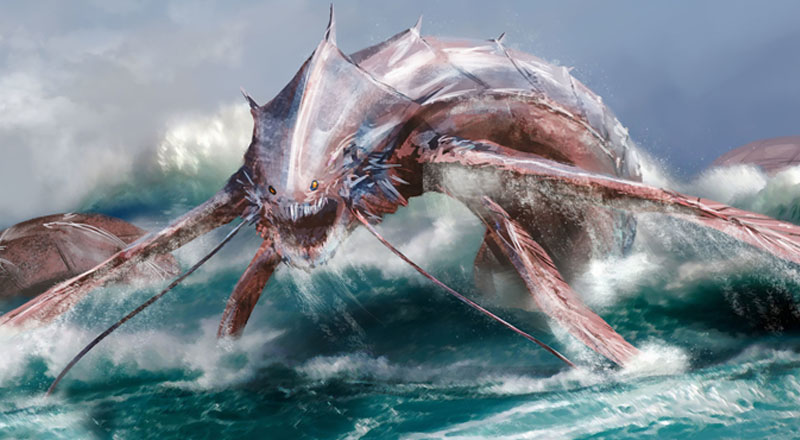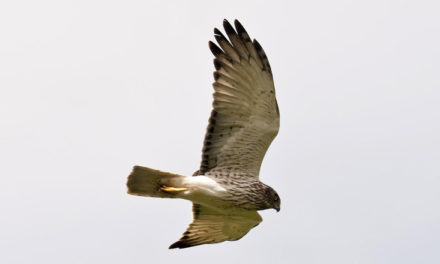Defeating The Dragon
Tena tātou katoa e te iwi mīhana… (Greetings to all the people in mission),
This month’s whakataukī (proverb) is: “Hoki atu i konā, ka tū ngā tai o Rākei mata taniwha rau.” (You had better go back, for where the waves break on Rākei the eyes of taniwha are waiting). This saying is a snippet from a larger story where a woman fleeing her husband for her lover skirts around a cliff to safety just as the tide is coming in. She yells back at her husband this warning: better back off or the taniwha will get ya! Taniwha are serpentine monsters of children’s nightmares and the subject of many a myth and legend. They are guardians of sacred places and punishers of taboo (tapu) breakers. Cultures around the world have taniwha legends. English speakers call them “dragons”.
Malevolence needs to be conquered if those affected are to be freed from its influence.
The dragon has endured for aeons as a symbol of power, chaos, intelligence, protected wealth and, when riled, destruction. They usually demand to be appeased via sacrifice and in this way act as malevolent gods. In ancient narratives they exist to be either conquered or tamed. Christopher Booker, in his book The Seven Basic Plots: Why We Tell Stories, ranks “overcoming the monster” as a perennially favourite storyline. It won’t take you too long to think of a favourite work of fiction that fits this plot. The monster can be anything from an evil tyrant, a controlling cabal, a corrupt government, an actual monster or an inanimate object hurtling toward the earth (as in the latest Netflix satirical offering, “Don’t Look Up”). Overcoming it may require its death, destruction or somehow neutralising it. It can also mean trying to harness its power, which usually does not work out so well. Either way, the malevolence needs to be conquered if those affected are to be freed from its influence.
In Scripture, the dragon-like beast is found in either the great sea (like a leviathan) or the untamed wilderness (like a serpent). Job 41 provides a graphic illustration of the leviathan sea serpent as the “king of beasts” (see NLT version below). Translators apply their best guesses to what the original Hebrew words “tannin”, “rahav(b)” and “livyatan” mean because they are somewhat unspecific—related to mythical monster creatures as opposed to actual sea mammals/serpents/reptiles. From a Māori perspective I believe they could be considered taniwha, but the translators of the Māori Bible preferred to transliterate English equivalents, for example “Rewiatana” for Leviathan. I am not a Bible translator, but this seems to me to be a lost opportunity to connect with Māori.
Regardless of the type of creature, the mythos around it is consistent: it is dangerous and only the most skilled or supernaturally gifted dare approach (e.g. St George). In fact, out of the whirlwind God argues that Job has no hope of controlling that which is too powerful for him (Job 41). After all that Job had endured, God says something like, ‘You cannot begin to comprehend the reasons why these things happened to you.’ To which Job concedes, “I take back everything I said, and I sit in dust and ashes to show my repentance.” (Job 42:6), and the Lord restores Job’s fortunes.
Our God is the Lord of the dragon and Jesus Christ is the name of this Lord who reigns over all. Those who live in-Christ are safe (saved).
Throughout Scripture, the dragon is used as an image of power beyond control of anyone but God. This is a core component of our Good News to people struggling under oppressive forces. It is summed up as “Our God reigns” (Isaiah 52:7). Our God is the Lord of the dragon and Jesus Christ is the name of this Lord who reigns over all. Those who live in-Christ are safe (saved). The uncontrollable chaos and turmoil might sting us but if we patiently endure by faith, we will be blessed (like Job). This is the prerequisite of Jesus’ promise to the seven churches of John’s Revelation—for those who are victorious, for those who conquer, or #stayonmission, a promised blessing awaits. That blessing comes in its fulness when the chaos monster is vanquished by God, as prophesied in Isaiah 27:1, “In that day the LORD will take his terrible, swift sword and punish Leviathan (the taniwha), the swiftly moving serpent, the coiling, writhing serpent. He will kill the dragon of the sea.”
In Revelation 12, it is no accident that the great dragon, the accuser who seeks to destroy the people of God (the global Church), is conquered by the blood of the Lamb, by their testimony… and by martyrdom if necessary. The scene (but not the story) ends with the dragon taking its stand on the shoreline, with the ocean behind a symbol to ancient Jews as the place where untameable monsters dwell—a symbol of uncertainty and chaos.
There are forces battling over this world that we cannot begin to comprehend.
In the industrialised modern world all these images are merely metaphors. So be it. Followers of Jesus, however, should be careful not to dismiss the spiritual reality even if its manifestation in the material realm does not resemble an actual dragon. There is a battle going on in this world that we mere mortals cannot begin to comprehend. Followers of Jesus, however, are aware that there are indeed malevolent forces at work beyond the perception of our natural senses. Furthermore, Scripture points to a personality leading those forces (the Liar or Accuser, Devil/Satan). The dragon is representative of forces that exist to breed all that is unholy in the world, every thing that corrupts and destroys relationships. Their influence is felt keenly in moments such as our present era, where it seems chaos is given free reign for a while and the nations of the world are devolving into factions and frictions as peoples’ passions and priorities polarise communities. It is like a tinder box out there, where wildfires ignite with the slightest of spark and spread with frightening ease. This is the dragon at work, mysteriously unrestrained once more, whose fiery breath fans the flames of dissent and discontent. Watch and wonder, but beware that you are not also bewitched by the dragon’s beguiling gaze, like Mowgli captivated by the hypnotic stare of Kaa, the Jungle Book’s protagonist python.
What then are the people of God to do? How do we fight this rampant evil without being coopted into the chaos? Like Job, we are best to simply surrender to what God is doing, for surely we are experiencing God at work globally in our day. I am not for one second suggesting that God is causing the chaos, but God’s purposes will prevail in it and through it. It is not for us to harness such powers or meddle in the dragon’s machinations. Rather, we are called to be faithful witnesses to God’s reign and the reality of our freedom in-Christ, made possible by His blood and all that it stands for. Our testimony is not some magic formula used in exorcisms, neither is ‘claiming the blood’ only for healings (while those things can form part of positioning ourselves as authorised representatives of Christ in the situation). Our testimony consists of obedient lives lived loving God, one another and our neighbours/enemies in a sacrificial manner, to SHOW the efficacy of the blood of the Lamb that makes available the power of the Holy Spirit to all who believe. That power enables us to respond in all situations with “aroha” (loving kindness), with intentional compassion, even though it may prove costly for us personally. Living free in-Christ, free to love and be a blessing to others, which is the basis of His Kingdom’s rule/ethic, overcomes the dragon, the great serpent, destroyer of all things good and every relationship on earth (Revelation 12:11).
Brothers and sisters, as we enter 2022, fear not the chaos nor the controllers. Those things are not ours to tame. As the dragon whips its tail in a frenzy, whitening the seas with foam, we are to continue serving God’s purposes, obediently, patiently, faithfully, lovingly. We persevere in our respective callings, secure in the knowledge that one day our collective voice will be heard like the roar of the ocean as the dragon thrashes its last, and we will be shouting “the Lord our God, the Almighty, reigns!” (Revelation 19:6). So, be encouraged and #stayonmission.
Arohanui ki a koutou e haere ana ki te ao (love to you all as you go into the world),
Jay
Then the LORD answered Job from the whirlwind…
Can you catch Leviathan with a hook
or put a noose around its jaw?
Can you tie it with a rope through the nose
or pierce its jaw with a spike?
Will it beg you for mercy
or implore you for pity?
Will it agree to work for you,
to be your slave for life?
Can you make it a pet like a bird,
or give it to your little girls to play with?
Will merchants try to buy it
to sell it in their shops?
Will its hide be hurt by spears
or its head by a harpoon?
If you lay a hand on it,
you will certainly remember the battle that follows.
You won’t try that again!
No, it is useless to try to capture it.
The hunter who attempts it will be knocked down.
And since no one dares to disturb it,
who then can stand up to me?
Who has given me anything that I need to pay back?
Everything under heaven is mine.
I want to emphasize Leviathan’s limbs
and its enormous strength and graceful form.
Who can strip off its hide,
and who can penetrate its double layer of armor?
Who could pry open its jaws?
For its teeth are terrible!
The scales on its back are like rows of shields
tightly sealed together.
They are so close together
that no air can get between them.
Each scale sticks tight to the next.
They interlock and cannot be penetrated.
When it sneezes, it flashes light!
Its eyes are like the red of dawn.
Lightning leaps from its mouth;
flames of fire flash out.
Smoke streams from its nostrils
like steam from a pot heated over burning rushes.
Its breath would kindle coals,
for flames shoot from its mouth.
The tremendous strength in Leviathan’s neck
strikes terror wherever it goes.
Its flesh is hard and firm
and cannot be penetrated.
Its heart is hard as rock,
hard as a millstone.
When it rises, the mighty are afraid,
gripped by terror.
No sword can stop it,
no spear, dart, or javelin.
Iron is nothing but straw to that creature,
and bronze is like rotten wood.
Arrows cannot make it flee.
Stones shot from a sling are like bits of grass.
Clubs are like a blade of grass,
and it laughs at the swish of javelins.
Its belly is covered with scales as sharp as glass.
It plows up the ground as it drags through the mud.
Leviathan makes the water boil with its commotion.
It stirs the depths like a pot of ointment.
The water glistens in its wake,
making the sea look white.
Nothing on earth is its equal,
no other creature so fearless.
Of all the creatures, it is the proudest.
It is the king of beasts.
(Job 38:1, 41:1-34 New Living Translation)






